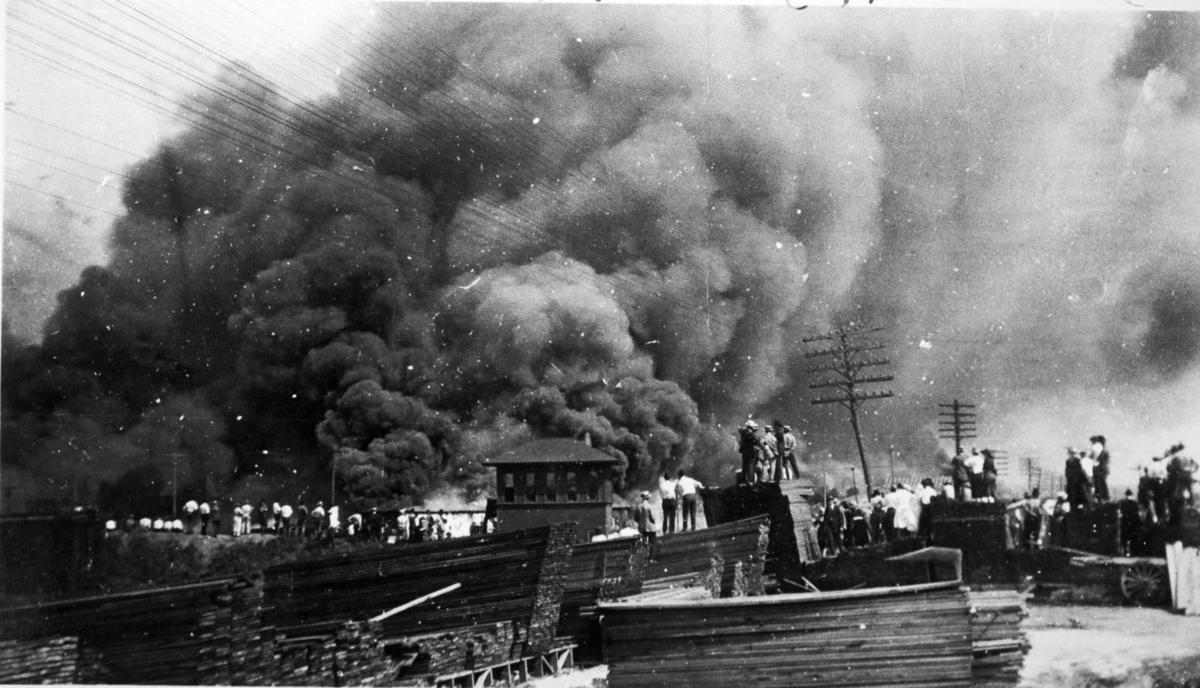Trump's views on race have been remarkably consistent for decades
June 12, 2020
By Chuck Todd, Mark Murray, Carrie Dann and Melissa Holzberg
WASHINGTON — For someone who’s been prone to deliver mixed messages on policy and take multiple positions on issues, President Trump has almost always been on the same consistent side when it comes to race.
This week alone, he defended military bases named after Confederate generals, and he announced he would restart his campaign rallies in Tulsa — the site of a 1921 massacre of black citizens by a white mob — on Juneteenth.
In the past month, when the protests over George Floyd’s death first began, he tweeted about “THUGS” and warned that “when the looting starts, the shooting starts.”
Earlier as president, he attacked Colin Kaepernick and protesting NFL players ("Get that son of a bitch off the field right now”); he referred to the Baltimore-area district represented by the late Rep. Elijah Cummings as a “disgusting, rat and rodent infested mess”; he did pretty much the same to Rep. John Lewis’ Atlanta district; and he talked about Haiti and African nations as “sh--hole countries.”
And before he became president, Trump led the “birther” crusade against Barack Obama; he began his 2016 campaign assailing Mexican “rapists”; he retweeted fake statistics spread by white supremacists falsely claiming that black criminals disproportionately prey on whites; and he called for the death penalty for the Central Park Five — five African-American and Latino men who, as teenagers, were wrongly convicted of raping a jogger.
So not only is Trump currently bucking much of the shifting corporate and cultural views on race, as the New York Times writes this morning.
This is who he is — and has always been.
To be sure, Trump can claim his work on criminal-justice reform, he can cite falling unemployment statistics for African Americans (which is no longer true), and he can criticize his opponents’ gaffes and own records on race.
But what remains remarkable is just how consistent Trump has been on the subject.
Over all of these years.
Trump: “We have to take care of our police”
And Trump’s consistent instinct also puts him at odds with the congressional work — by both Democrats and Republicans — on police reform.
“Trump [yesterday] offered some broad outlines of the steps he might embrace to answer the national demand for action. He told the roundtable participants he was working on an executive order to ‘encourage police departments nationwide to meet the most current professional standards for the use of force, including tactics for de-escalation,’” the Washington Post writes.
But: “He defended police officers and slammed calls to ‘defund’ them, saying it means people want to get rid of law enforcement. Most advocates use the term to mean the reallocation of police budgets to social services including housing and education.”
“‘We have to respect our police. We have to take care of our police. They’re protecting us. And if they’re allowed to do their job, they’ll do a great job,’ Trump said. ‘And you always have a bad apple. No matter where you go, you have bad apples and there not too many of them.’”
















